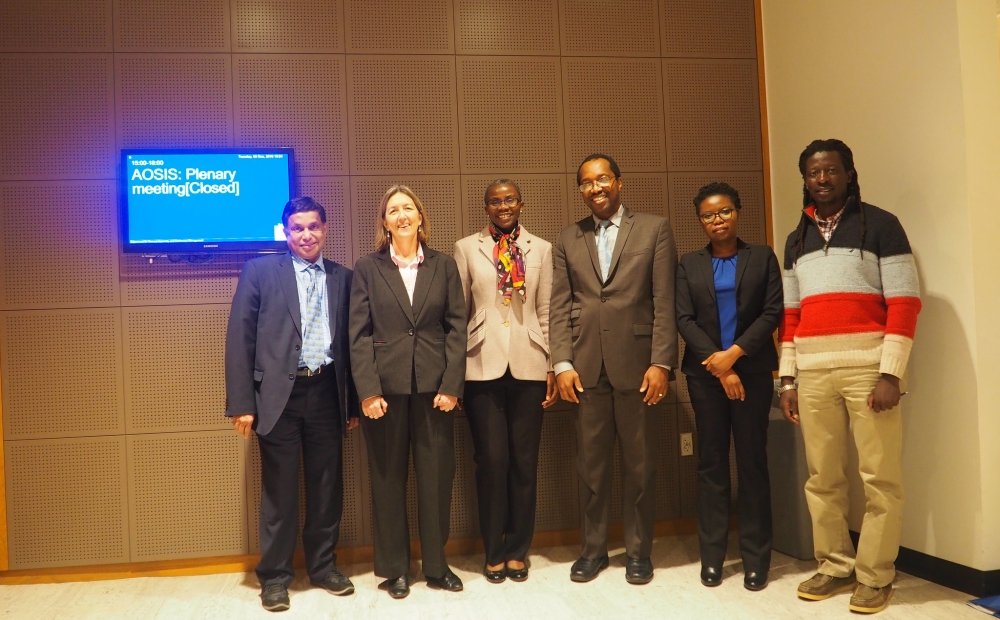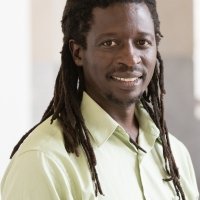UN Policy Roundtable: Representations of Violence, (In)security, and Peace in Africa: Challenges for Policy and Practice

A partnership event held in collaboration among the United Nations Academic Impact (UNAI), the African Peacebuilding Network (APN), and the Wilson Center Africa Program
On December 6, 2016, the Wilson Center partnered with the United Nations Academic Impact (UNAI) and the Social Science Research Council’s African Peacebuilding Network (APN) to host a high-level policy roundtable on “Representations of Violence, (In)security, and Peace in Africa: Challenges for Policy and Practice.” Held at the United Nations Headquarters in New York City, the event brought together top-level policymakers, practitioners, scholars, and media experts to brainstorm the changing dynamics and evolving trajectories of violence in Africa, including new actors in Africa’s conflict terrain.
Panelists included Dr. Peace Medie, Research Fellow, Legon Center for International Affairs and Diplomacy (LECIAD), University of Ghana; Dr. Fredrick Ogenga, Head, Department of Communication, Journalism and Media Studies and Founding Director, Center for Media, Democracy, Peace & Security (CMDPS), Rongo University College, Kenya; and Ms. Angela Martin, Adjunct Faculty, Africa Center for Strategic Studies and former Senior Counterterrorism Advisor, Bureau for Africa, U.S. Agency for International Development. Opening remarks were given by Dr. Cyril Obi, Program Director, African Peacebuilding Network (APN) Program, Social Science Research Council (SSRC), and discussion was moderated by Mr. Ramu Damodaran, Chief, United Nations Academic Impact Secretariat.
The dialogue focused on lessons learned in relation to how violence is conceptualized and approached at the regional and global levels, and explored options for better-informed policies and actions for promoting long-term peace in Africa. Key topics discussed include: the framing of information and sensationalism of conflict in the media; the implications of (mis)representations of violence on policymaking; the significance of policy priorities, both domestic and international, in shaping government responses, and the importance of strategically positioning information to appeal to funders and policymakers; the dynamic and evolving capabilities for reporting and the proliferation and decentralization of media outlets; and the tools for effective responses, such as more comprehensive training and education programs for a broad range of actors – from journalists to policymakers and implementers of conflict-response and peacebuilding initiatives.
The framing of information can have a significant impact on one’s understanding and response to conflict, with implications for the effectiveness of response strategies taken by practitioners and policymakers at various levels of society. Unfortunately, media attention tends to focus on the negative stories and graphic depictions that are more likely to capture an audience (“if it bleeds, it leads”). There are many practical and often costly implications for this sensationalism – primarily a general misunderstanding of the nuances of the situation, resulting in less effective strategies for reconciliation, and an under-reporting of situations that do not make for attention-grabbing headlines. In the case of gender-based violence (GBV), for example, sensationalism can be particularly harmful and even unethical. Often simplified as sexual violence, GBV is in reality a continuum of violence, with implications for the design and implementation of strategies and projects to combat it. A more comprehensive approach is needed in combatting GBV with coordinated, specialized institutions designed to offer various levels and types of support, from pro-prosecution assistance to the provision of safe housing.
The positioning of conflict and insecurity within larger domestic and international policy priorities was likewise a critical point of discussion. Eliciting effective and financed engagement by government actors and funders requires an understanding of the priorities of various actors and the ability to provide and present information in a manner that is digestible and relevant to a targeted audience. Training and education programs provide one avenue for improving the evaluation and representation of violence and insecurity in Africa, offering tools to students, journalists, and all actors both producing and consuming information.
The nature of violence in Africa is changing – with the proliferation of non-state actors, reliance on young and untrained soldiers, and the democratization of violence, it is imperative that we evaluate the framing of information, the impact it has on responses, and the current and potential tools to develop comprehensive, effective policies to promote sustainable peace.
Photos by Vivian Isaboke (APN-SSRC)
This event was made possible by the support of the Carnegie Corporation of New York, which funds the Southern Voices Network for Peacebuilding.
Speakers

Associate Professor of Media and Security Studies, Rongo University and Founding Director, Center for Media, Democracy, Peace & Security (CMDPS).


Hosted By

Africa Program
The Africa Program works to address the most critical issues facing Africa and US-Africa relations, build mutually beneficial US-Africa relations, and enhance knowledge and understanding about Africa in the United States. The Program achieves its mission through in-depth research and analyses, public discussion, working groups, and briefings that bring together policymakers, practitioners, and subject matter experts to analyze and offer practical options for tackling key challenges in Africa and in US-Africa relations. Read more
